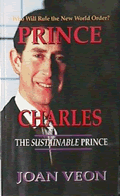EXECUTIVE OR IMPERIAL BRANCH?
 By
Ivan Eland
By
Ivan Eland
May
7, 2008
NewsWithViews.com
More memos recently have surfaced that were written early in the Bush administration by John C. Yoo from the Justice Department's Office of Legal Counsel -- the man who gave us the administration's horrifyingly narrow definition of torture. As difficult as it is to believe, the recently released memos are even scarier than the original torture memo.
Yoo boldly asserts that the president's power during wartime is nearly unlimited. For example, he argues that Congress has no right to pass laws governing the interrogations of enemy combatants and the commander-in-chief can ignore such laws if passed, and can, without constraint, seize oceangoing ships.
The memos also argue that military operations in the United States against terrorists are not subject to the Fourth Amendment requirement for search warrants or the Fifth Amendment requirement for due process.
This broad interpretation of executive power and the president's commander-in-chief role would make the nation's founders jump out of their graves. Purposefully, the Constitutional Convention enumerated the large number of Congress's powers in Article I, and gave most powers related to defense and foreign affairs to the people's branch.
In particular, the war power was given to Congress. The chief executive, whose powers were enumerated in the much more brief Article II, was given the commander-in-chief role, but this was intended narrowly, only as commander of U.S. troops on the battlefield.
Instead of declaring war, which has fallen out of fashion, the Congress, after 9/11, passed a resolution authorizing the president to go after al-Qaida overseas but deliberately omitted domestic activities from that authorization.
Democrats and Republicans alike declared that they were not endorsing a broad expansion of the president's authority as commander-in-chief.
An important example from the nation's infancy shows how narrowly the founders regarded the president's role as commander-in-chief. During the Quasi-War with France in the last years of the 1700s, Congress authorized President John Adams to seize armed ships sailing to French ports. Adams exceeded the congressional authorization by ordering the seizure of vessels sailing to or from French ports. The Supreme Court, in the case Little v. Barreme, ruled that Adams had exceeded the authority Congress had delegated to him. So much for Bush's supposed intrinsic authority to seize all oceangoing ships without congressional authorization.
In 1952, President Truman, the first imperial president, seized the steel mills under his alleged "inherent power" as commander in chief -- supposedly to prevent paralysis of the national economy and using the rationale that soldiers in the Korean War needed weapons and ammunition.
By a wide margin, in the case Youngstown Sheet & Tube Co. v. Sawyer, the Supreme Court struck down Truman's executive order to seize the mills because it had no statutory or constitutional basis. Essentially, the court ruled that the president may be commander-in-chief of the armed forces but not the country.
Yoo's assertion that Congress has no right to pass laws that impinge on the president's claim to a broad interpretation of his role as commander-in-chief violates the core of the constitutional system of checks and balances, and for which the United States regularly criticizes despots in foreign countries.
Finally, the Fourth Amendment (requiring warrants for any search) and the Fifth Amendment (the right to due legal process) contain no exceptions for wartime. In fact, in a republic -- where the rule of law should be king -- crises and wartime are exactly when people's rights are most likely to be endangered and when safeguards are especially needed.
|
Subscribe to the NewsWithViews Daily News Alerts! |
Even more tragic and dangerous than the quagmires of Iraq and Afghanistan have been President Bush's usurping of power from the other two branches of government and the creation of the "hyperimperial" presidency.
� 2008 - Ivan Eland - All Rights Reserved









